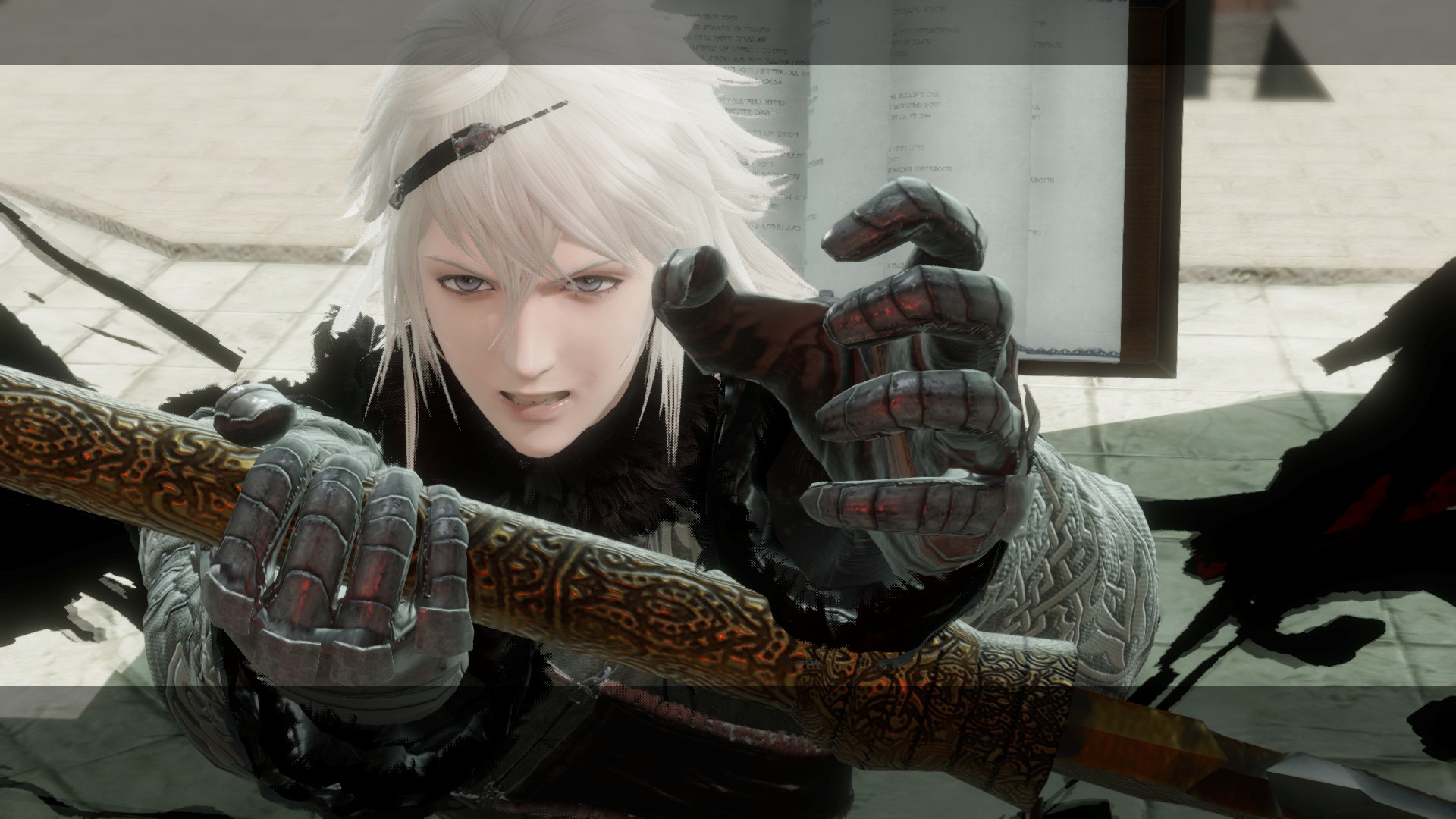Our Verdict
Nier Replicant is a fabulous remaster of a lauded but messy cult classic, improving it without giving up on its essential strangeness.
PC Gamer's got your back
What is it? A full recreation of beloved and strange action JRPG Nier.
Expect to Pay: $60/£50
Reviewed on: Windows 10, Intel Core i7-8750H, 16GB RAM, GeForce RTX 2060
Release date: April 23, 2021
Publisher: Square Enix
Developer: Square Enix, Toylogic Inc.
Multiplayer: None
Link: Official site
If you didn't know that 2010's Nier was the final game from studio Cavia Games, you might be able to tell from playing it. The action RPG feels like a final act: a swing for the fences characterized by anger, tragedy, and a desperate sincerity. And like most desperate swings, it failed at the time: sales were poor, Cavia Games was absorbed into its parent company, and Nier's creative director, Yoko Taro, moved on to ply his craft elsewhere.
If Nier was characterized by desperation, then NieR Replicant ver.1.22474487139… (henceforth referred to as the Nier remaster, because good lord) is an act of love. Created by developer Toylogic and publisher Square Enix with the direct involvement of Taro and his regular band of collaborators, the Nier remaster feels like an attempt to make good on the ideas and promises of that original game. After its sequel Nier Automata became an unlikely hit in 2017, the team is betting that now is the right time to reintroduce broader audiences to the charms of the original game. Maybe this time they'll be more receptive.
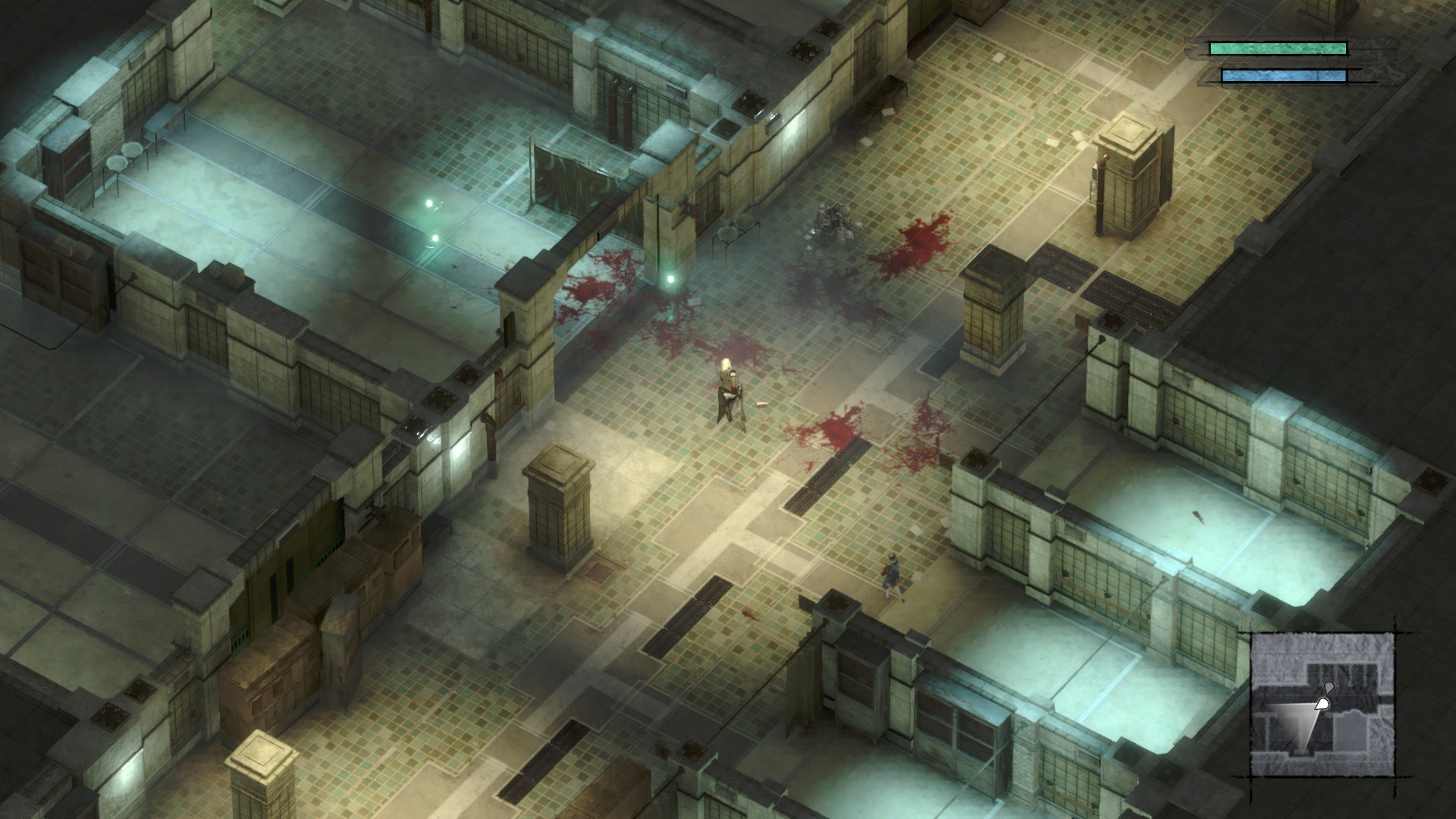
I honestly don't know if they will: Even in its remastered form, Nier remains a singular and at times tedious game, a piece of art eager to try everything and constantly seeking out the hardest notes to hit. But it's also one of the most memorable games I've ever played, and the remaster captures and enhances its greatness in just about every way.
If you come into Nier expecting a direct prequel to Automata's cyberpunk-and-thigh-highs existentialist action, you won't find anything like that. Taking place literally thousands of years before that story, it's set in a post-apocalypse that's swung right back around to pastoral fantasy, following a boy and his sister in a world of magic diseases, monsters, and at least one talking book. As that boy, you'll be questing around a dark fantasy world while trying to cure your sister of a terrible disease, joining up with some of the best outcasts in gaming: Grimoire Weiss, the book; Kainé, a half-monster warrior woman who casually drops words like "shitpurse" into combat dialogue; and Emil, the sweetest little boy you've ever met who happens to have terrifying magic abilities.
The game plays out like a sort of dark pastiche of standard fantasy adventure games like The Legend of Zelda, delighting in videogame conventions while also subverting them and turning to deeper thematic territory, meditating on violence, human cruelty, and what it means to persist in a world that wants you dead and is probably dying itself. Along the way, you'll find sharp shifts in genre, like segments ripped out of bullet hell games or a dungeon crawl that switches to an isometric perspective to remind you of Diablo.
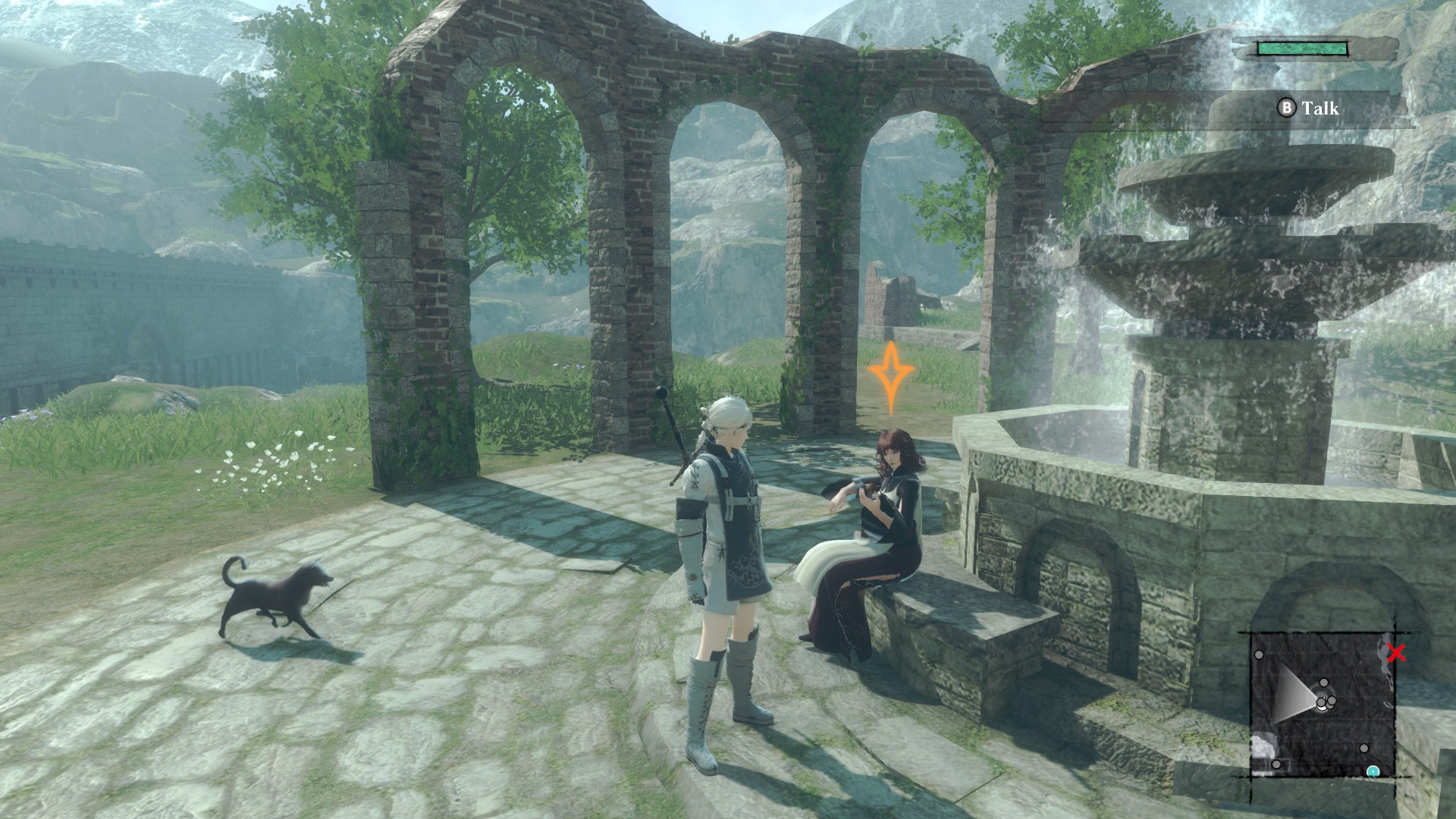
What that means, in practice, is that you'll be spending most of your time running around lush fields and dank dungeons, doing quests and fighting ethereal monsters called Shades. Taking after Automata, the combat is significantly more dynamic and fluid than it was in the original, with combos and dodges that feel graceful and responsive. Magic, once clunky and slow to use, is now integrated neatly into combat, letting you launch spells and ranged attacks parallel to standard melee fighting, which goes a long way toward making the player feel both powerful and fast. Parts of the game that were obtuse before are more clearly explained, like a notorious fishing minigame that now is less of a roadblock than it is an extended gag for those who can't figure it out. Nier's famous genre shifts pop more, too, now that the core combat mechanics are so much more entertaining. Before, digressions into weirder gameplay territory felt like a drag, slowing down the pace of fighting and exploring that could already feel incredibly dull. Now, they're a lot more welcome, tied together by big, dramatic battles.
The technical aspects are much improved over the original, which struggled to maintain 30 fps, but they're not quite up to contemporary standards. There are no options related to framerate, and it appears to cap at 60 fps. You can bump up or down texture filtering, shadows, reflections, and LOD, but there could have been so much more here. I ran into a few odd technical problems, too, like serious frame drops when I accidentally unplugged my controller, or a persistent issue where my mouse cursor kept reappearing on my screen during cutscenes, which was not great for the game's sense of gravitas.
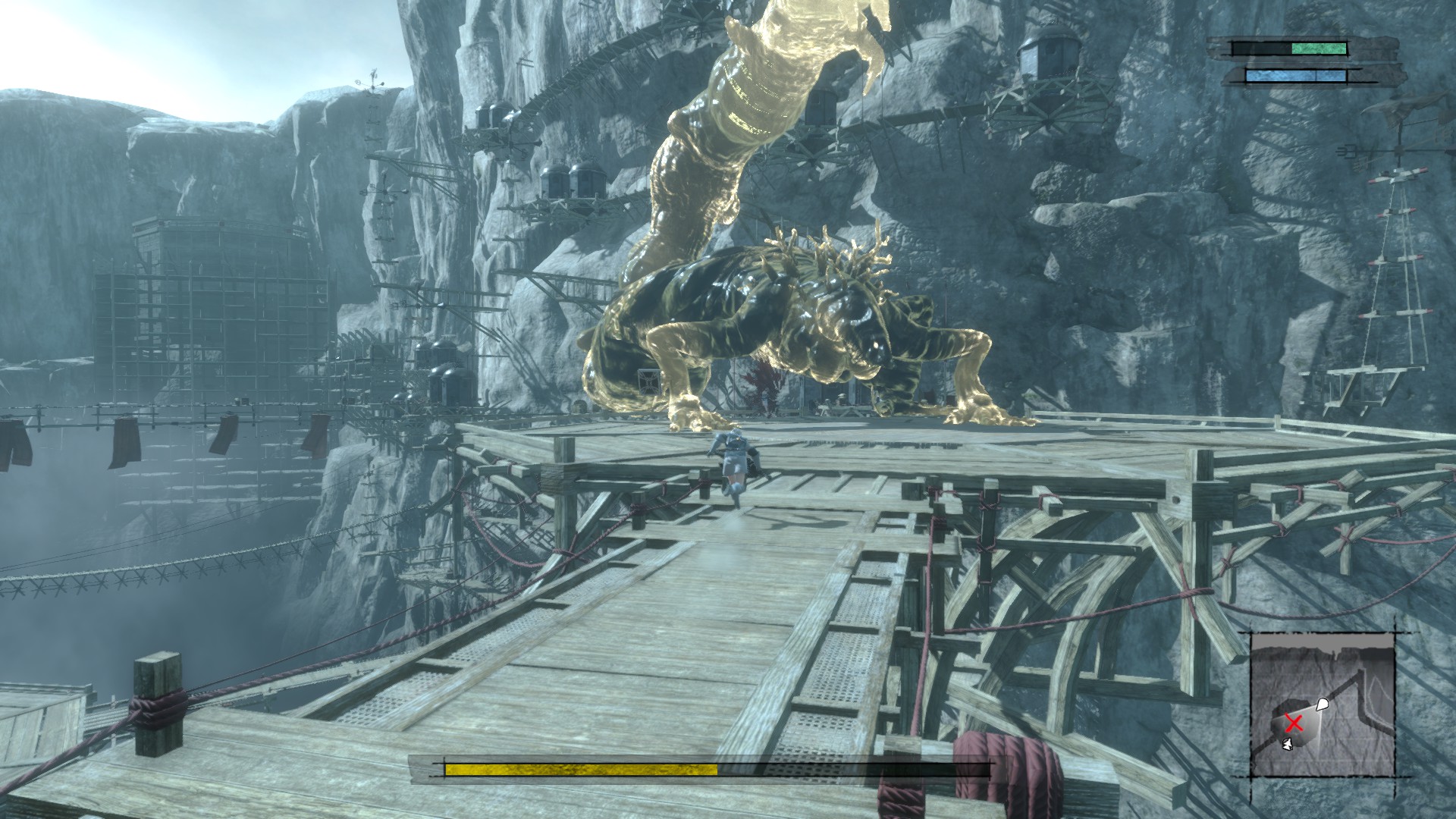
In all other ways, this is a remaster that is lavishly devoted to the original. It's so, so easy for remasters and remakes to impose new meaning on an old work, decontextualizing old games and rewriting their style with something new and ill-fitting. The Nier remaster manages to avoid doing that in just about every respect. The graphics are much more advanced now, not quite cutting-edge but at least on par with Automata, yet that doesn't lead to a change in the game's aesthetic. So many of the visual touches that were key to the original Nier—the surreal pulsing textures on the monsters you fight and the magic you use, and the overly washed-out lighting that's so characteristic of games made at that time—are recreated here in a more advanced fashion. It looks different, yes, and I don't entirely agree with all of the design changes (why did they change Kainé's jawline, she was already perfect?), but much success has been had in capturing the original's mood and style. For long-time players, this will feel like a homecoming.
There's new material here, too, a smattering of new quests and story beats that don't change the narrative so much as they deepen it. The feel, for me, is that of a director's cut—additions and tweaks that add context and complexity, better connecting Nier to its sequel, adding to the original's feeling of exhaustion with new, bright moments of vibrancy. It feels not just like an ending, now, but a beginning.
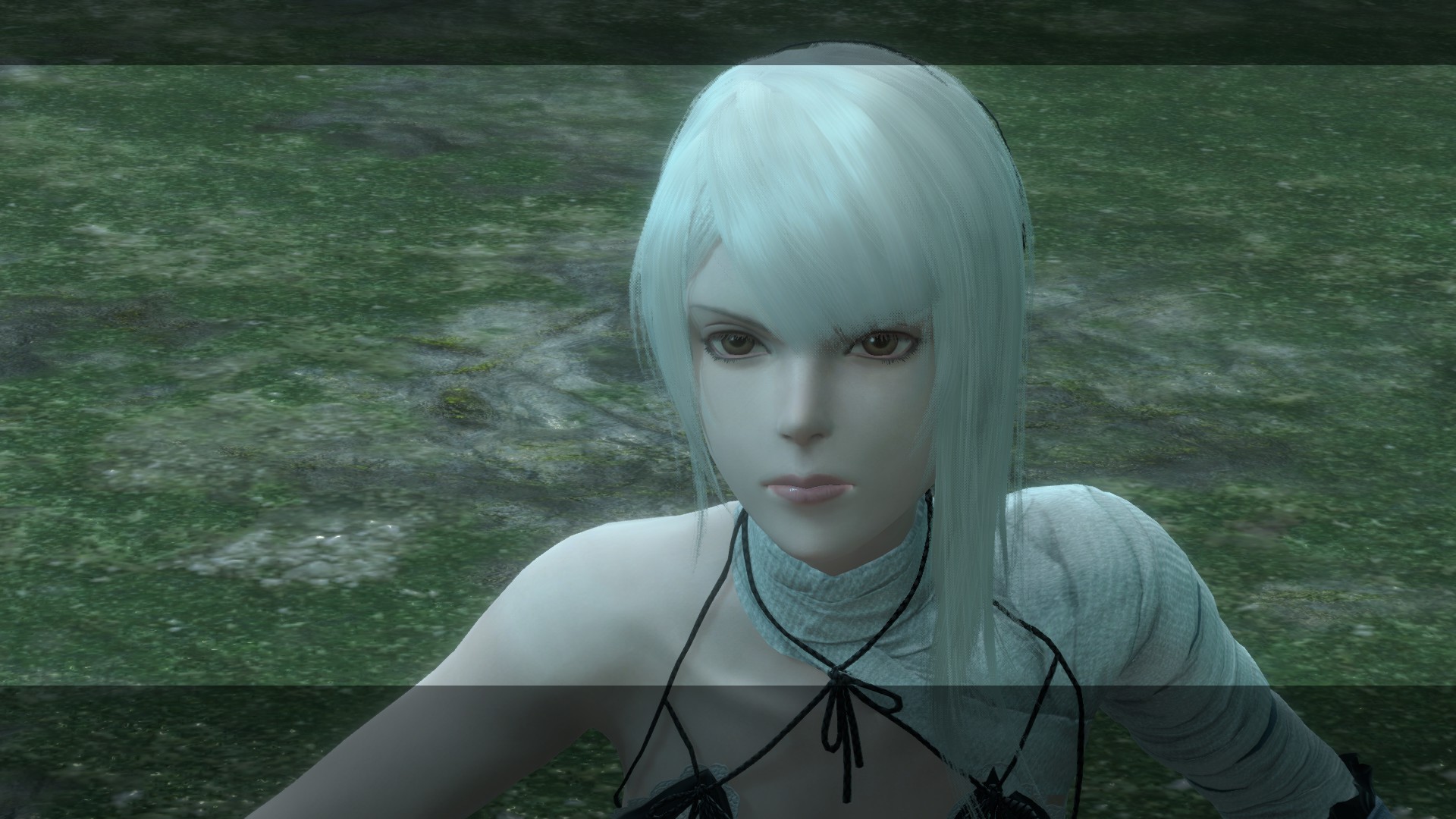
That means, in both the good and the bad ways, this is still Nier. Like the original game, it relies on repetition, layering narrative meaning over multiple playthroughs, which is inventive, but also tiresome in later stages of the game. Like the original game, it has never even heard of subtlety. But like the original, it's also heartfelt. It's protean, constantly playing with genre and style in ways that feel visionary even eleven years later. And it has some of the best goddamn music in the medium.
Listen, I don't know how people are going to respond to Nier in 2021, even with all the new bells and whistles. It's far from perfect. But I'm telling you: it's worth it. The original is one of my favorite games ever made, and the remaster improves it. Nier is special.
Nier Replicant is a fabulous remaster of a lauded but messy cult classic, improving it without giving up on its essential strangeness.
